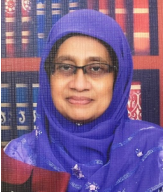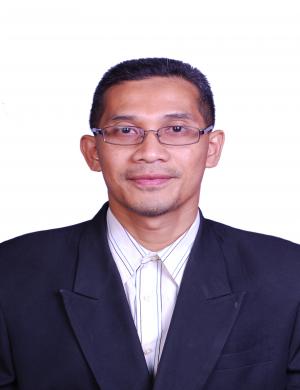
2024 4th International Conference on Public Management and Big Data Analysis (PMBDA 2024)
Speakers

Prof. Dr. Hamidah Binti Ibrahim
Department of Computer Science, Universiti Putra Malaysia, Malaysia
Research Area: Database, data science, data management in mobile, grid, and cloud.
Experience: HAMIDAH IBRAHIM is currently a professor in the Department of Computer Science at Universiti Putra Malaysia (UPM), Malaysia. She received her Ph.D. in Computer Science in 1998 from Cardiff University, UK. She is a member of IEEE, IEEE Computer Society, and Association Computing Machinery (ACM). Her current research interests include databases focusing on issues related to system integration/mapping, cache management, data security, transaction processing, query optimization, preference evaluation – context-aware, information extraction, and data management in mobile, grid, and cloud. She has received several research grants; among others are the Fundamental Research Grant Scheme (Ministry of Higher Education Malaysia), ScienceFund (Ministry of Science, Technology, and Innovation), and Research University Grant Putra. She has authored more than 300 scientific publications and book chapters. She serves as the editorial board member of several outstanding journals as well as reviewer of several scholarly journals like IEEE Access, Information Sciences, Journal of Supercomputing, International Journal of Distributed Sensor Networks, PLOS ONE, etc.
Speech Title: Efficient Skyline Query Computation: Overcoming Challenges and Exploring New Frontiers
Abstract: Query processing, a well-established technique for retrieving relevant objects from a database in a reliable and efficient way; has achieved tremendous success at both research and industry levels. It operates by retrieving only those data points that strictly satisfy the conditions specified in the query or returning an empty result if otherwise. Recent advancements in query processing attempt to relax these stringent requirements by retrieving the best, most preferred data points from a database. This paradigm, known as skyline queries, leverages the concept of Pareto dominance, has achieved significant success, particularly in applications related to multi-criteria decision making; where several conflicting criteria must be evaluated in the decision-making process. Despite their success across various applications, skyline queries face significant challenges when dealing with datasets involving numerous criteria, large volumes of objects, or incomplete and uncertain data. This talk delves into efficient skyline query computation techniques used across diverse real-world applications, highlighting the challenges they present and suggesting potential research avenues. Key themes include addressing scalability, managing uncertainty, and integrating advanced methods to enhance the performance and broader the applicability of skyline queries.

Assoc. Prof. Dr. MUHAMMAD FAIZAL BIN A. GHANI
Faculty of Education, Universiti Malaya, Malaysia
Research Area: EDUCATIONAL LEADERSHIP,Social Sciences, Education, Specialist Topics In Education
Experience: Muhammad Faizal A. Ghani is an Associate Professor in the Department of Educational Management, Administration and Policy, Faculty of Education, University of Malaya, Kuala Lumpur. His expertise is Educational Leadership focusing on Educational Management and Administration, and School Finance. His expertise is for the benefit of society by sharing some academic knowledge, skills, and value in the forms of reading material such as publishing nine academic books and two hunderd articles. His latest academic book entitled “Professional Learning Communities: Theories and Practices”. In terms of delivering an academic speech, he has been selected to be keynote speakers and invited speakers for some international and national conferences, seminars, and workshops. In the research area, besides being an evaluator for research proposals of his university’s academic staff, he has been awarded more than USD80,000 research grants for his interest in Effective School, Educational Leadership, School Finance, and Principalship. Therefore, all experiences of him are put in the shape of a journal namely Journal of Educational Leadership by appointing him as an editor besides being an editorial board for some international journals like Bannu University Research Journal in Education, Journal of Economics and Finance, European Journal of Educational and Social Sciences and International Journal of Education Teaching and Learning.
Speech Title:Data Driven Decisions for School Improvement
Assoc. Prof. Dr. NORHAYATI BINTI ZAKUAN
Faculty of Management, Universiti Teknologi Malaysia, Malaysia
Research Area: TQM, Risk Management, Supply Chain Management
Speech Title: The Growing Acceptance and Current Research Trends in Enterprise Risk Management (ERM)
Abstract: Risk is something that is unblessed. It needs to be effectively monitored and controlled. As the business grow, risk also cannot be avoided. Due to the complexity of business situation and current globalisation, the players in business are considering the best way to control and monitor risks and leads to think beyond just profitability. There are many factors contributed to risk especially dynamics in social, political, and economic environment, strong competition, rapid technological advancements, and methodological changes forces the organisations to establish strong risk management system. The introduction of Enterprise Risk Management (ERM) gives them an idea to handle several risks. As ERM acceptance was increasing amongst producers and marketers, the buzzwords such as “integrated risk management”, “firmwide risk”, and “holistic risk management” was adopted with little definition as to what they really mean. The challenge presented by what is still essentially a concept, is to develop a clear picture of exactly how ERM is utilised within companies or organisations. ERM is about optimising the process with which risks are taken. It has become a critical issue in the 1990s because organisations have started suffering spectacular losses often from risks, they never should have taken in the first place. Many companies throughout the world faced big losses in the 1990s. For instance, Orange County (November 1994) lost $1.7 billion, Barings Bank (February 1995) lost $1.5 billion, Daiwa Bank (September 1995) lost $1.1 billion, and Sumitomo Corp (June 1996) lost $1.8 billion. In the last decade, numerous organisations have suffered staggering losses such as these. The problem is not with the financial tools, but the people who use them. While many financial tools are new, the problem with people acting fraudulent, or just irresponsible, has always existed. Hence, organisations need to be intelligent enough in managing their risks not only to grasp the benefit out of it but also to survive in business.